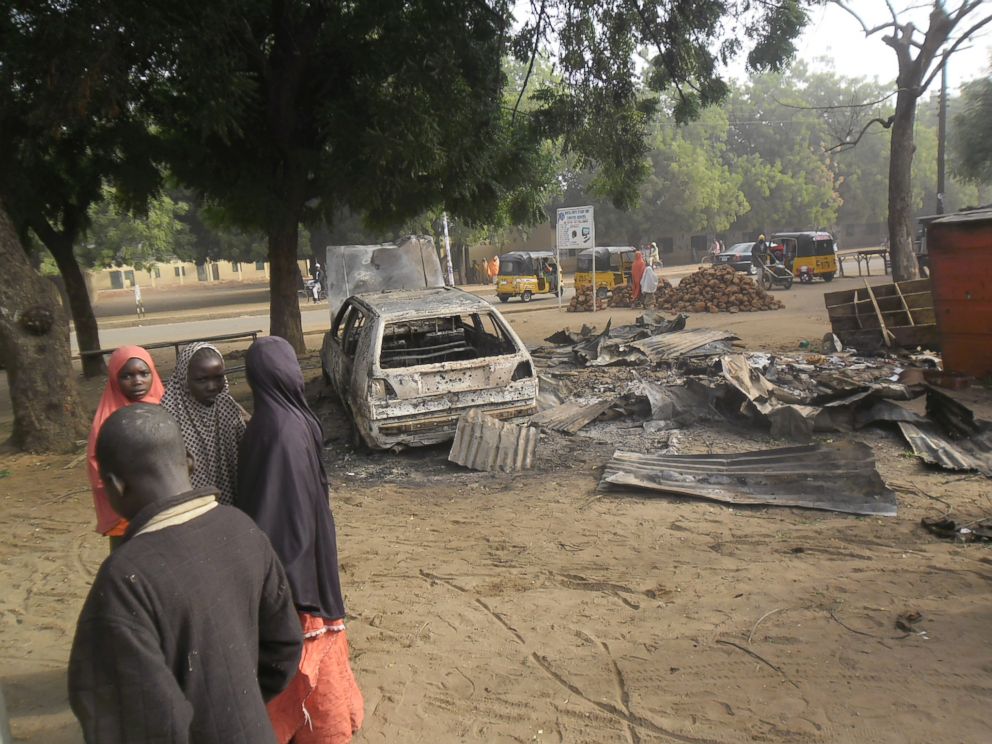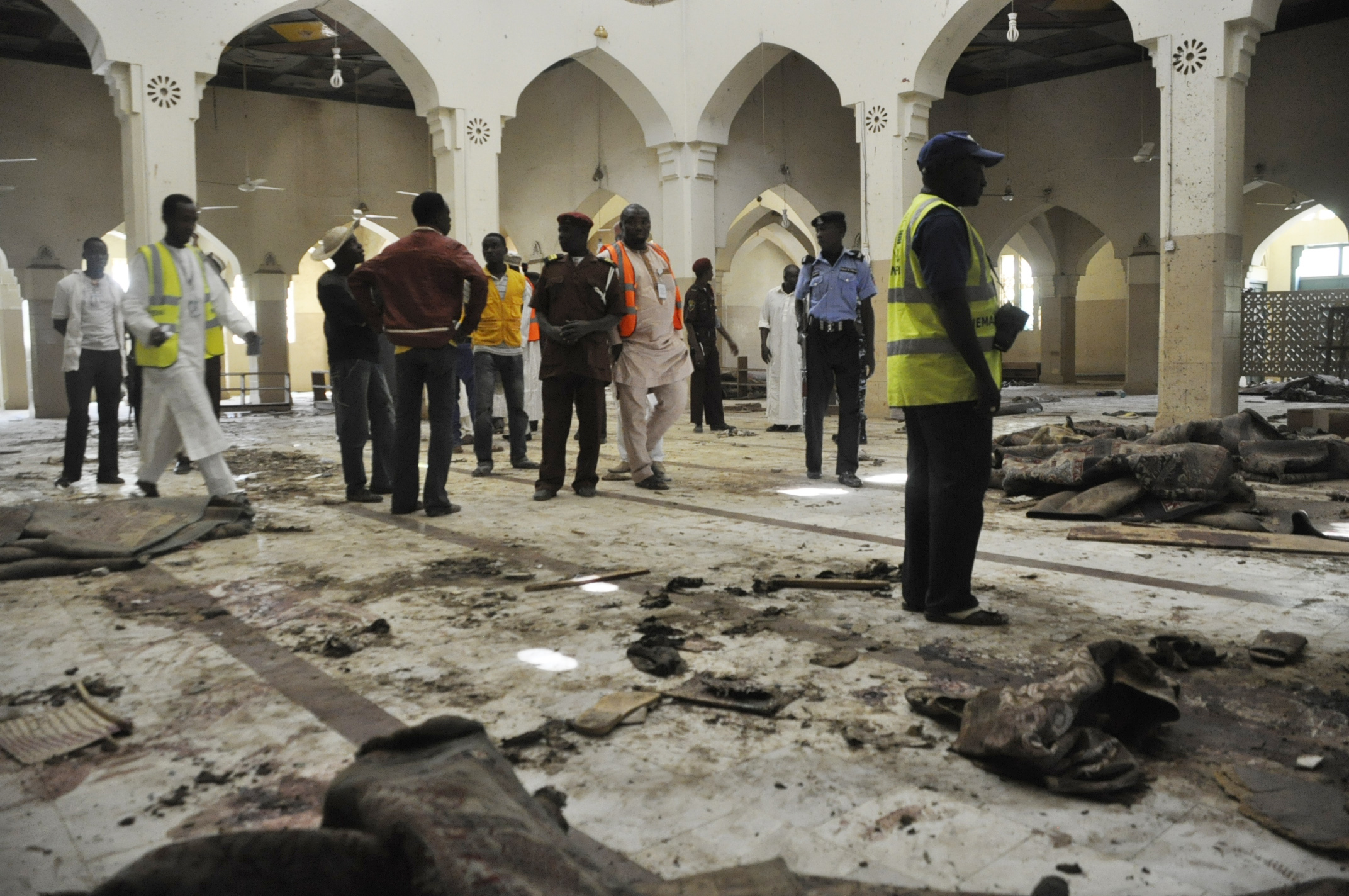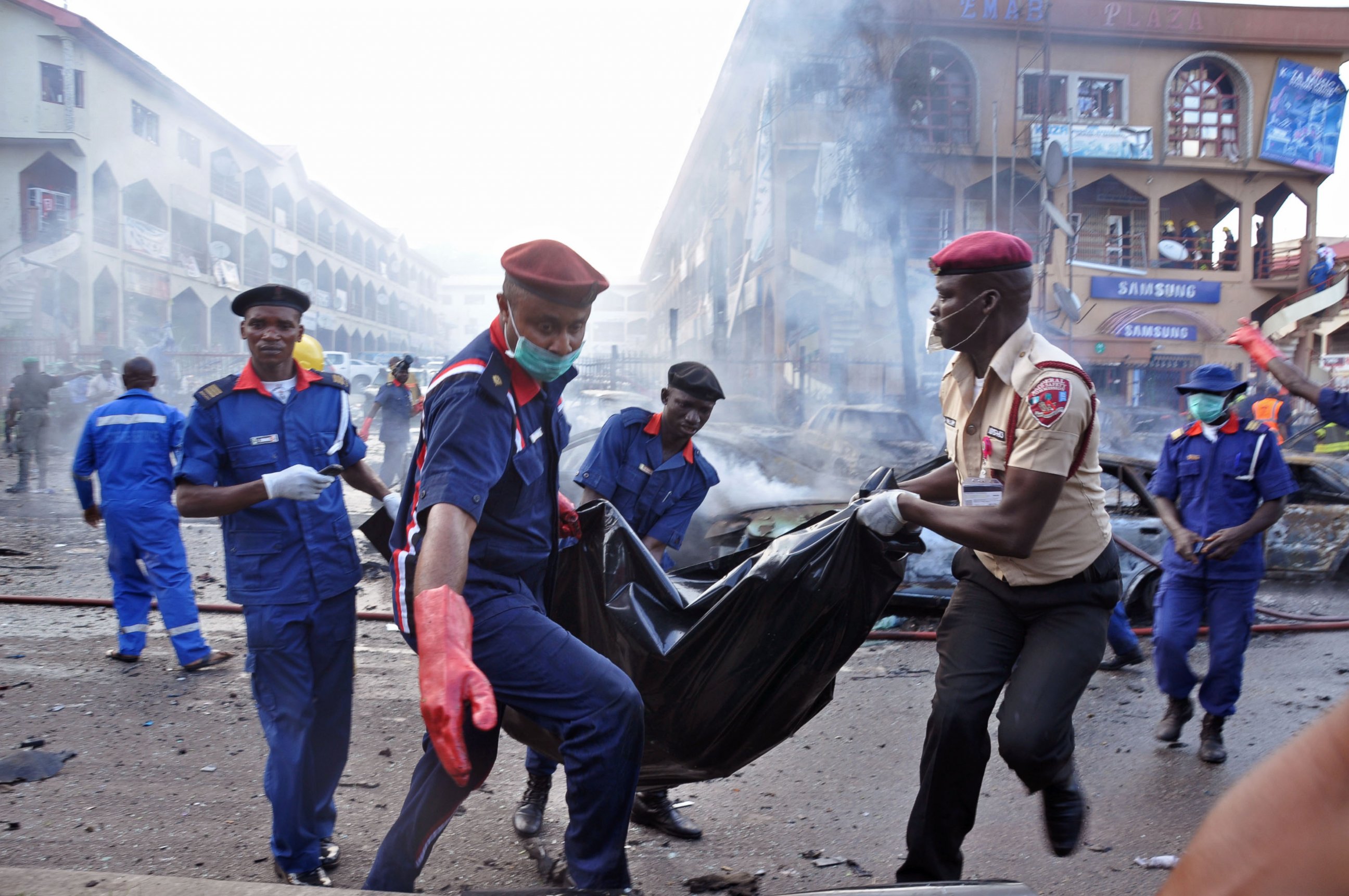Boko Haram's Latest Brutal Attack: What to Know About the Militant Group in Nigeria
Militant group's recent attack left as many as 2,000 dead, watchdogs say.
— -- The militant group Boko Haram's latest attack in Nigeria has once again put the spotlight on the violence erupting in the African country.
International watchdogs fear an attack last week in the town of Baga could be the deadliest strike yet, but the actual death toll remains unclear. The Nigerian government, which experts say has a history of underplaying the level of violence, insists no more than 150 people died. Experts and outside agencies quote witnesses saying closer to 2,000 people were massacred.
Here's a recap of the conflict in Nigeria.
What Is Boko Haram?
Boko Haram is a militant Islamic group that has existed for more than a decade in Nigeria, but it has become increasingly violent since an internal leadership change in 2009.
Prior to clashes with police in 2009 over the group's refusal to follow a motorcycle helmet law, the group was not intent on violently overthrowing the government, according to the Council on Foreign Relations.
During those clashes, the group's then-leader Mohammed Yusuf was executed on live television and the group then splintered before becoming significantly more violent.
Who Is It killing and Why?
The group's targets have expanded and its violent attacks have become more frequent, according to John Campbell, who served as the American ambassador in Nigeria from 2004 to 2007 and now works as a senior fellow at the Council on Foreign Relations. Government officials, police and military forces are among its most regular targets, but according to the Council on Foreign Relations, it has attacked a United Nations building as well as multiple religious and public institutions.
The disturbing trend of killing or kidnapping civilians -- including young school children -- has happened frequently since 2011 and the practice came under international scrutiny when there were reports in mid-April 2014 that the group kidnapped more than 270 schoolgirls and threatened to marry them off to jihadis or sell them as sex slaves.
The group has stated that it believes the government is corrupt and feels that the country, which has large Christian and Muslim populations, should be ruled under strict Islamic law.

What Happened During the Recent Attack at Baga?
In the assault last week in the northeastern town of Baga, the estimated death toll varies widely, from as few as 150 to as many as 2,000.
Reliable information from both Baga and other rural towns in remote northeastern Nigeria is hard to come by for multiple reasons. The dangers of the fighting have kept reporters and international aid groups away, with the United Nations collecting its data from interviews with refugees after they flee to neighboring countries. Campbell said that Boko Haram has also targeted cell phone towers in the region, meaning that entire cities have been cut off the communication grid.
"Each new crime committed by Boko Haram exceeds the last in brutality," actress Angelina Jolie, who is a special envoy to the United Nations High Commissioner for Refugees, said in a statement about the latest attack. "This is a direct consequence of the environment of total impunity in which Boko Haram operates. Every time they get away with mass murder, rape and the enslavement of women and children, they are emboldened."
In the latest case, there was a battle between Nigerian Security Forces and Boko Haram in Baga but news of the attack took days to spread and the details remain hazy, according to the BBC.
"If reports that the town was largely razed to the ground and that hundreds or even as many as 2,000 civilians were killed are true, this marks a disturbing and bloody escalation of Boko Haram's ongoing onslaught against the civilian population," Amnesty International researcher Daniel Eyre said in a statement.

What Is Boko Haram Doing to the Women and Children It Abducts?
The fate of women and children kidnapped by the militants first came into international question following the April 2014 abduction, and ensuing #BringBackOurGirls social media campaign. Official numbers have not been updated, but an undisclosed number of the approximately 276 girls who were kidnapped in Chibok have been freed and the leader of Boko Haram claims that they have married the remaining girls off to soldiers and other Muslim men.
They have continued abducting women and children since, however, and their latest attack seems to indicate that they are using them in different, horrifying ways.
A few days after the Baga attack, there were reports of another suspected Boko Haram attack. In a town more than 100 miles from Baga, three female suicide bombers were used to kill 23 people in different market attacks, according to the BBC, with one of the bombers believed to be 10 years old.
Why Is It Hard to Get Reliable Reporting From Areas Under Boko Haram's Control?
Campbell told ABC News that the competing interest of the Nigerian government and a lack of reliable independent media reports contribute to the lack of international attention paid to the subject.
"Northeastern Nigeria is as north as the moon," Campbell said. "Even for Nigerians in Lagos [the country's most populous city] it's hours and hours away."
"A civil war within Northern Nigerian Islam -- and it is a civil war -- that has very little meaning to Westerners," he said.
It is in the best interest of the government to downplay the attacks, Campbell noted, as Nigerian leaders and the army have been unsuccessful in fighting off the militant group.

Does Boko Haram Have Sympathies With Other Terror Groups?
Boko Haram is not known to have any formal connections to al Qaeda and, more specifically, its Yemen-based affiliate AQAP, which claimed responsibility for the latest attacks in Paris.
That hasn't stopped Boko Haram from praising the other terrorist group's actions, however, as Boko Haram leader Abubakar Shekau congratulated AQAP's work in the Paris attacks in a video posted online, which has not been independently verified by ABC News.
"We are happy over what befell the people of France ... as their blood was shed inside their country as they [try to] safeguard their blood?," Shekau said in a video posted online today, viewed by the AFP news agency.
Shekau regularly posts videos online, often wearing camouflage and holding a machine gun, as he did in this latest video.
What Is the Death Toll From Boko Haram Attacks?
Boko Haram has been responsible for at least 5,778 deaths since April 2014, according to research compiled by the Council on Foreign Relations. That was when the group gained widespread notoriety in the West due to the kidnapping of the Chibok schoolgirls. But those who have been watching the group for years have noticed an escalation of violence that preceded that incident.
"Since 2009, the horror has increased incrementally," Campbell told ABC News. "Suicide bombers were virtually unknown until 2011. This past week, that children were used as suicide bombers is something entirely new. And then a little more than a year ago, the use of women as suicide bombers, that was entirely new. It certainly isn't anymore."
One of the group's declared objectives is to overthrow the Nigerian government, and many of its attacks have focused on the rural, northeastern portions of the countryside but have been spreading south and west over time.
"You can also see that Boko Haram has also become more successful, occupying now perhaps 20 percent of Nigeria's territory and the government has become basically less successful," Campbell said.
Editor’s Note: This article has been updated to correct the number of deaths attributed to attacks by Boko Haram from April 2014 to this month. This amended figure is based on reporting by the Council on Foreign Relations.



